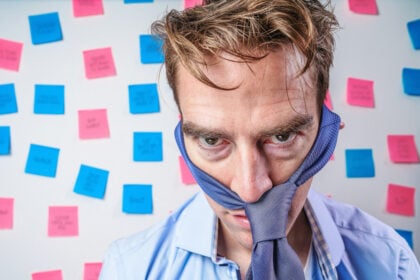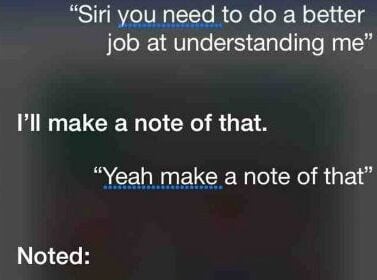Therapy memes aren’t just cracking jokes—they’re cracking open conversations. In 2025, social media isn’t just where we scroll—it’s where we cope, connect, and, increasingly, where we go to laugh at our own anxiety. The rise of “therapy memes” is changing how we talk about mental health, and the shift is very, very online.
😂 Therapy’s Going Viral, and That’s Not a Bad Thing
Therapy used to be something you whispered about. Now? It’s in your feed—wearing crocs, dodging calls from your therapist, and captioned “Me after one session thinking I’m healed.”
Across platforms like TikTok, Reddit, and Instagram, therapy memes have exploded into the mainstream. We’re talking millions of views, shares, and stitches. The hashtag #therapymemes on TikTok has over 30 million views and counting. These bite-sized jokes about trauma, anxiety, and self-awareness are funny, yes—but also deeply relatable.
They’re the new digital language for Gen Z and Millennials who grew up with therapy as both a punchline and a lifeline.
📲 The Real Appeal of Therapy Memes
Why are therapy memes so popular right now?
It’s simple. They’re funny, they’re fast, and they make you feel seen.
In a world where mental health struggles are skyrocketing—especially among young adults—humor has become a way to reclaim control. These memes offer validation with a wink: “Yes, you’re spiraling, but hey, at least you can laugh about it.”
Let’s break down why this trend hits home:
–They normalize therapy. You’re not weird for needing help—you’re just one of the thousands joking about it online.
–They’re emotionally efficient. In one image, they can sum up what would take paragraphs to explain.
–They build community. Laughing at shared pain makes it feel… less painful.
🧠 Are We Laughing or Avoiding?
Here’s where it gets tricky: are therapy memes helping or are they just another form of avoidance?
Humor is powerful. But there’s a fine line between catharsis and deflection. Mental health professionals caution that too much joking can delay actual healing, especially when memes replace deeper conversations.
As The Guardian recently reported, TikTok’s mental health content can often blur facts with feelings, creating a space where misinformation thrives. The rise of memes about “self-diagnosed PTSD” or “my toxic traits” can reinforce stereotypes or downplay serious issues if not handled carefully (source).
But that doesn’t mean we should cancel therapy memes. Instead, we should consume them consciously—knowing that while they’re not therapy, they can point us toward it.
💬 What the Internet’s Saying
“My therapist saw my meme account. She told me I’m coping. I said: I’m content creating. 😂” – @sessionzero on X
“It’s wild how a single meme can sum up my entire last three months of therapy.” – u/iammycopingmechanism on Reddit
“Me: sends trauma meme to bestie. Bestie: sends back one worse. Us: bonding 💀❤️” – @attachedandinsecure on TikTok
🔍 Keyword Spotlight: therapy memes
Yes, we’re talking about therapy memes a lot—and for good reason. These aren’t just random jokes. They’re a keyword goldmine and a cultural phenomenon. Search volume for “therapy memes” has quadrupled since 2021, with people Googling everything from:
-“funny therapy memes”
-“therapy meme Instagram accounts”
-“can therapy memes be harmful?”
-“best Reddit therapy memes”
-“therapy memes for burnout”
It’s not just humor—it’s a whole ecosystem of online emotional literacy.
💡 What Makes a Great Therapy Meme?
You’ve seen them. You’ve laughed. You’ve maybe sent one to your therapist. But what gives a therapy meme its punch?
Here’s what usually works:
–Hyper-relatability: That “how did they get in my head?” vibe.
–Timing: Jokes that mirror cultural or generational trends (like the overuse of “it’s giving…” or astrology in self-diagnosis).
–Tone: Somewhere between self-aware and self-deprecating.
–Format: Classic image macros, tweet screenshots, or TikToks with overlaid captions.
🔗 How BigTrending Is Keeping Tabs on the Meme Mindset
Here at BigTrending, we’ve been following this shift for a while. Our piece on “Therapy Speak Goes Mainstream” dives into how clinical language like “boundaries,” “trauma,” and “gaslighting” has become pop culture shorthand.
Therapy memes are part of that same movement—they translate psychological insight into something you can double-tap.
🧾 Meme Therapy in Real Life? It’s a Thing.
Believe it or not, some therapists now use memes in therapy sessions.
TikTok therapist @yourdiagnosishere shared in a recent video that memes help Gen Z clients articulate feelings they struggle to say aloud. One client even opened up by sharing a meme instead of answering a question. And guess what? It worked.
It’s not a replacement for talk therapy. But it’s a reminder that humor can be a bridge—not just a mask.
🧵 List: 5 Meme Genres That Are Basically Group Therapy
–The “me after one session” healing arc.
–The “ghosted my therapist” confessionals.
–The “I overthink everything” meme.
–The “trauma but make it aesthetic” format.
–The “my therapist is tired of me” TikTok trend.
Each one carries a hidden message: I’m not okay—but I’m figuring it out.
🧠 Final Take: Laughing Our Way to Healing
Therapy memes won’t fix your attachment issues. They won’t replace medication. But they will make you feel less alone at 3AM when you’re spiraling in your Notes app.
In a world that can feel isolating and chaotic, there’s something beautifully human about using humor to say, “Hey, me too.”
Let’s just remember: memes can open the door to healing—but they’re not the whole house. Walk through. Get the help. Then send your therapist a meme.
They’ll probably laugh too.
❓ FAQ
Q: Are therapy memes harmful or helpful?
A: They’re helpful when used with self-awareness and balance. They open up conversations—but shouldn’t replace real therapy.
Q: Can I use memes in actual therapy?
A: Surprisingly, yes. Many therapists say memes can help clients express emotions they struggle to verbalize.
Q: Where can I find the best therapy memes?
A: Reddit threads like r/TherapyMemes, Instagram accounts like @yourtherapymemes, and TikTok’s #therapymemes tag are solid starts.
Q: Are therapy memes just a Gen Z thing?
A: Not at all. Millennials were early adopters, but Gen Z has taken them viral. Now they’re part of the internet’s mental health language.









